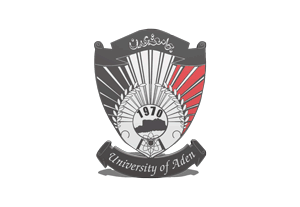JOB SATISFACTION AND ITS RELATIONSHIP TO ORGANIZATIONAL COMMITMENT AMONG ACADEMIC LEADERS AT THE UNIVERSITY OF ADEN
DOI:
https://doi.org/10.47372/ejua-hs.2021.1.74Keywords:
Job satisfaction, Organizational commitment.Abstract
The study aimed to address two of the most important phenomena of organizational behavior, namely organizational commitment, and job satisfaction. The study aims mainly to identify the level of job satisfaction and the level of organizational commitment among academic leaders at the University of Aden, as well as to identify the relationship between job satisfaction and organizational commitment, and to identify the impact of the study variables ( Gender - Qualification - Job) on the relationship of both job satisfaction and organizational commitment of academic leaders at the University of Aden, and knowing the differences between the responses of the study community members, with regard to job satisfaction and organizational commitment due to variables (gender, academic qualification, job).
The two researchers prepared the questionnaire in its final form and it contains (53) items distributed among two pivots after being presented to a group of arbitrators, and after ensuring the validity and reliability of the tool, the researcher applied this tool, and (119) copies of the questionnaire were distributed to all academic leaders at the University of Aden (Distributed in the Office of the Presidency of the University of Aden and its colleges and educational centers). The researchers used the descriptive analytical survey method and statistical treatments and used the SPSS statistical program in analyzing data and information related to the two axes of the study and using appropriate statistical means in its treatment and drawing conclusions.
The study revealed a set of results, the most important of which are:
1) The level of job satisfaction of the academic leaders at the University of Aden as (average), through the level of the general estimate of the axis, whose general arithmetic average reached (3.82), that is, with a percentage weight (76.22%), and a standard deviation of (0.670).
2) The level of organizational commitment of academic leaders at the University of Aden in the axis of organizational commitment at a medium level, through the level of the general estimate of the axis, whose general arithmetic mean was (2.62), i.e. a percentage weight (52.4%), and a standard deviation of (0.763).
3) The existence of a positive statistically significant relationship at a significance level (0.05) between the job satisfaction of academic leaders at the University of Aden and the extent of their organizational commitment.
4) There are no statistically significant differences at the level of significance (0.05) between the opinions of the members of the study community about the level of job satisfaction of academic leaders at the University of Aden due to the variables (job, academic title, years of experience) as the (F) values calculated in the overall scale indicate (1.630) is less than the tabular value of (F) (2.758).
5) There are no statistically significant differences at the level of significance ((0.05) between the opinions of the study community members about the level of organizational commitment of academic leaders at the University of Aden attributable to the variables (position, academic title, years of experience) as the (F) values calculated in the overall scale indicate (0.163) being smaller than the tabular (F) value (2.758).








